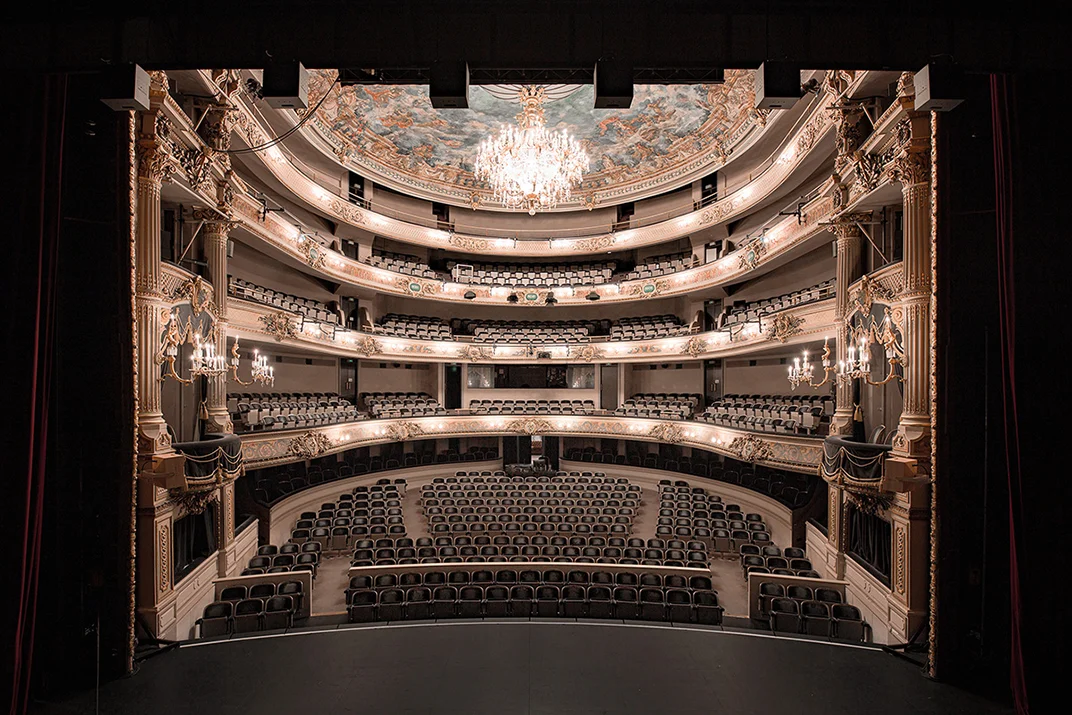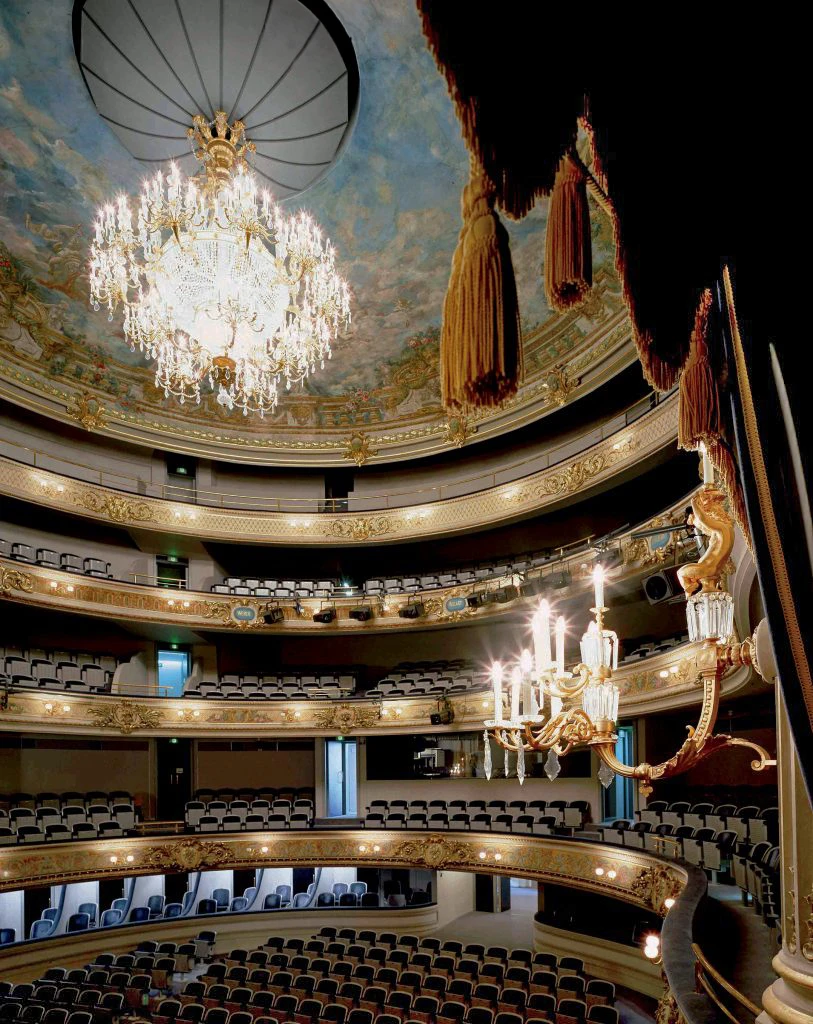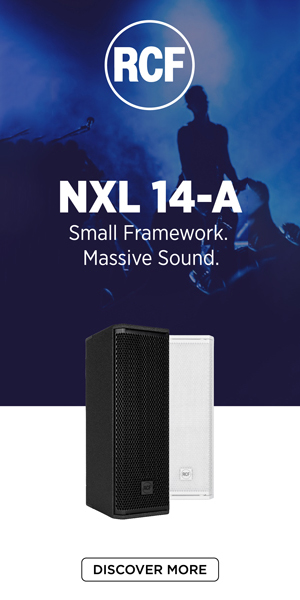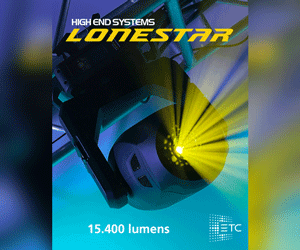Amadeus and HOLOPHONIX have installed a 34-speaker system with HOLOPHONIX spatial control into the ‘Royal Theatre of Namur’ in Belgium. The concept was to offer the listening audience the best sound possible from every seat in the Italian-style theater, using HOLOPHONIX spatial sound technology and discreetly placed speakers without breaking the architectural theme of the ornate antique theater.
“The previous sound system essentially consisted of two pairs of French well known constant curvature speakers installed on two subs mounted on the stage frame, plus a few coaxial delays to open up the less well-served areas of the balconies.
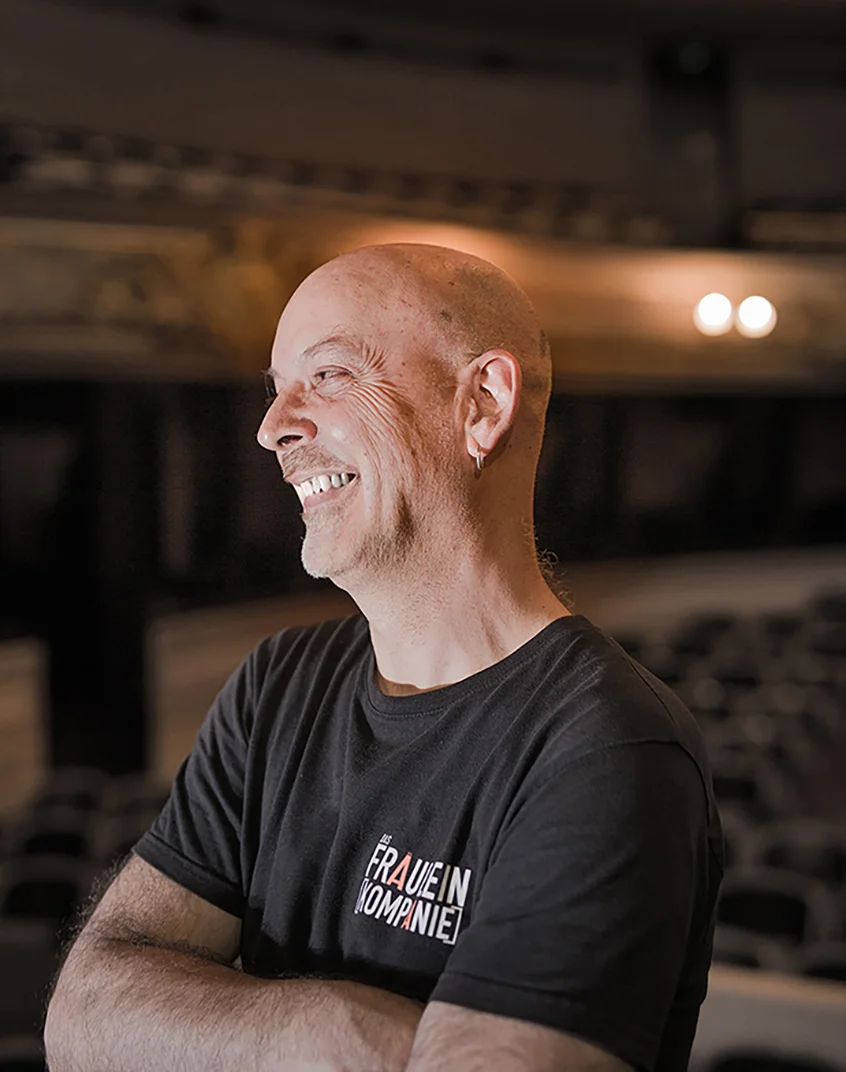
The venue is a magnificent listed Italian-style theater, restored at great expense during a project that lasted from 1994 to 1998 – gilt in every corner, coquettish velvet curtains, intricate moldings, bourgeois armchairs, frescoes under the dome, and all the decorum you can imagine. Our previous speaker system was nothing less than a punch in the face for this architectural masterpiece,” says Patrice Dhautcourt, Sound Department Manager at the Royal Theatre of Namur.
After visiting the Paris-based National Theater of Chaillot, and a few months after hearing an incredible concert at the Courtyard of Honor during the Avignon Festival – both using Amadeus speakers and HOLOPHONIX spatial processing – Dhautcourt was convinced this was the type of sound system for the Namur Royal Theater.
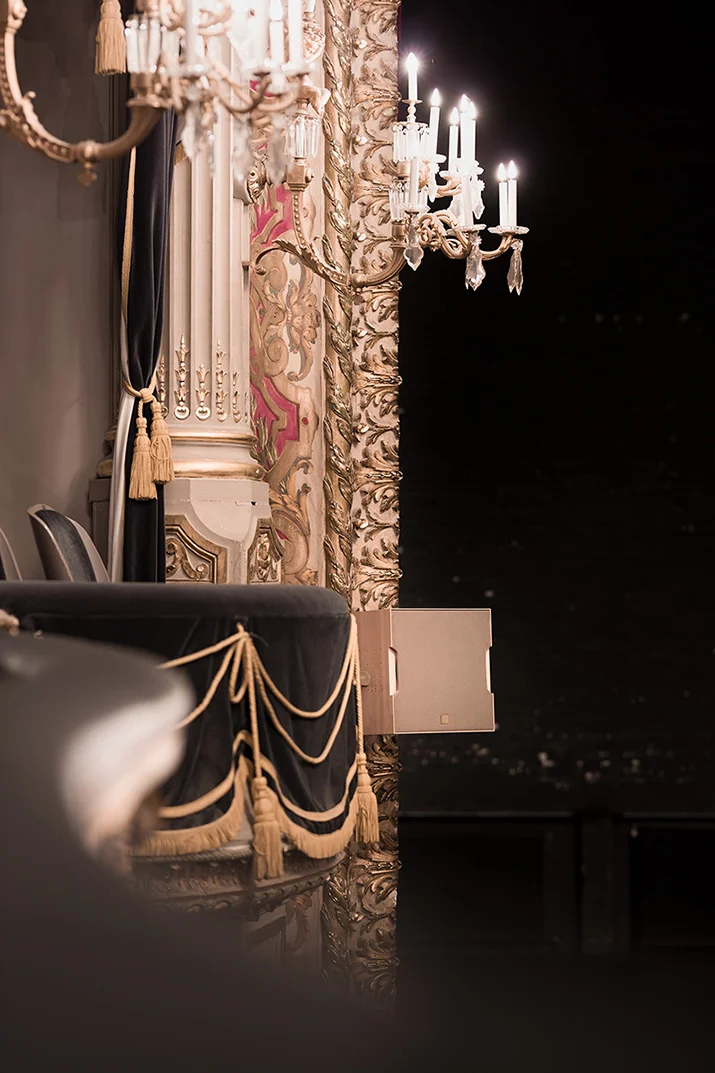
Dhautcourt recalls his experience at the Avignon Festival, “When the musician played the first notes – even though I was sitting halfway downstage left – I was absolutely certain that what I was hearing was the unplugged instrument, so impeccably natural was its timbre and location.
At the same time, I was equally sure that this was not possible, as I know the sound level of a harpsichord, which is far too light to be heard by all listeners in these conditions. As an atheist, I was witnessing a miracle of technology. Off to the left, 30 meters from the source, my brain swore it was an acoustic concert, but I was wrong.”
The sound system for the Royal Theatre of Namur had to be as versatile as possible and capable of handling a wide variety of programs including theatre, dance, readings, one-man shows, concerts, etc.

“Built in 1863, the Théâtre Royal de Namur is Italian in its architecture and acoustics. The audience area is horseshoe-shaped. Faithful to the principles inherited from the 16th century, its acoustics aim to naturally amplify the sources present on the stage and in the orchestra pit.
They are naturally amplified by the arch of the proscenium, and in the auditorium, by the resonant warmth of the wood and the reverberant finesse of the stucco,” says Francesco Papaleo, Technical engineer at HOLOPHONIX. “In designing and tuning the sound system we have always tried to take advantage of this architecture, playing with the acoustics, rather than against them,” adds Francesco Papaleo.
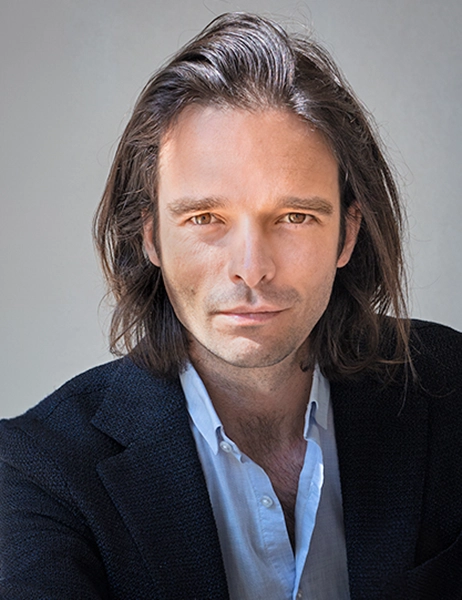
“We came up with two systems in one, both very different in their philosophy and very complementary in that they respond to very different demands, uses, and needs,” stated Gaetan Byk, CEO of Amadeus and HOLOPHONIX companies. “In practice, these ‘two systems’ simply correspond to two presets in HOLOPHONIX that the users can easily recall and edit depending on the creative project which is featured at the theater.”
“The first system is very ‘traditional’ in its design,” explains Gaetan Byk. “It consists of three levels or ‘floors’ of speakers distributed over the height, each point of diffusion being perfectly broadband up to 40 Hz. This purely stereophonic system is coupled to a front-fill sound ramp, which is controlled according to the laws of Wave Field Synthesis via the HOLOPHONIX processor. This system offers lower localization quality, but remarkable spectral precision, pressure level, and coverage. It’s also extremely easy to use, enabling host companies to work in the traditional left/right mode.”

Gaetan Byk continues, “The second ‘Spatial FOH’ system is much more innovative and offers advanced localization capabilities. It consists of a 6-speaker high line with six Amadeus C 12 speakers and a 14-speaker front-fill low ramp. Lateral subwoofers and infra-bass reinforcements can be added as required.
These two lines are naturally driven by Wave Field Synthesis busses via HOLOPHONIX for perfect sound field re-creation. This system is further optimized for object mixing, finely reinforcing acoustic sources while maintaining their localization properties. Perceptively, the diffusion system ‘disappears’ completely, to the benefit of the acoustic sources present on the stage.”
“We now have a system that propels us into the league of the most sonically ambitious creations,” said Patrice Dhautcourt.
The new Royal Theatre of Namur sound system consists of:
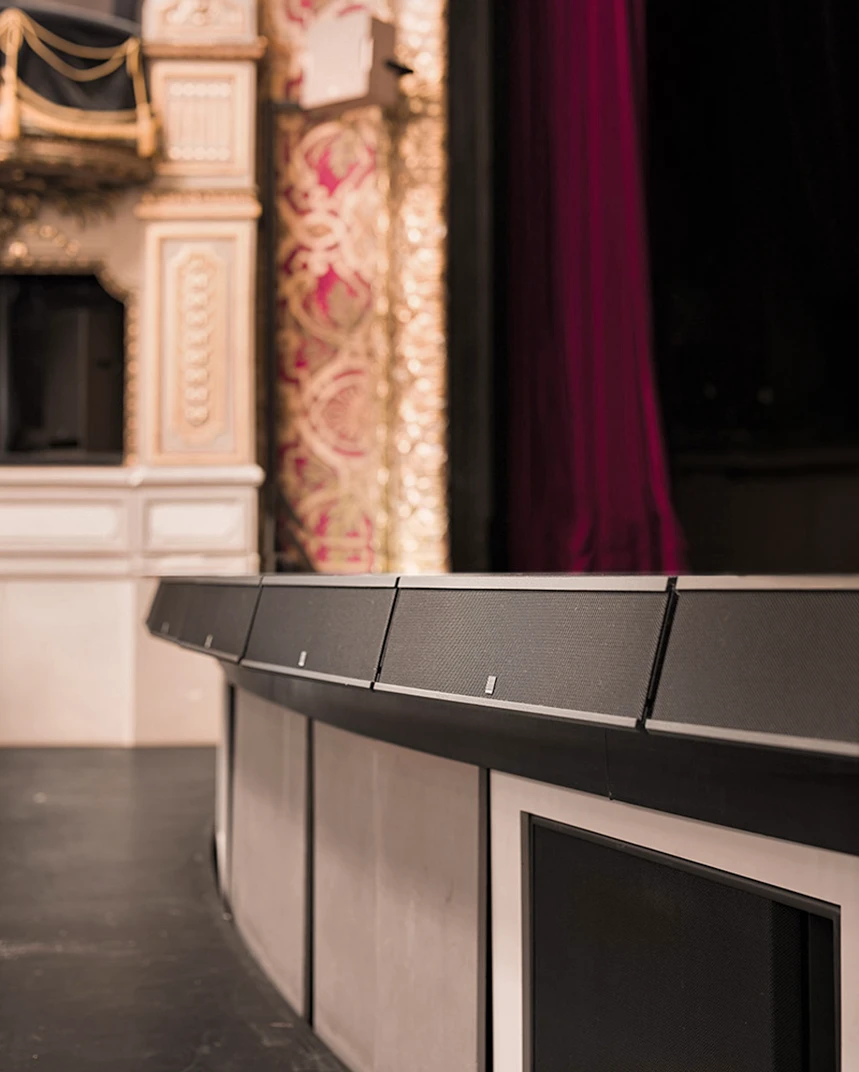
14 Amadeus SR 790 NMR sound ramp modules, each equipped with a two-way coaxial transducer with a 5.25-inch diameter woofer, a 1,75” driver and two passive radiators. These modules are mounted at the front of the stage and are used as a font-fill system.
6 Amadeus C12 coaxial loudspeakers, each equipped with a 12-inch diameter woofer. These loudspeakers form an upper ‘line’ or ‘antenna’ flown above the stage. They are driven by the HOLOPHONIX processor using a Wave Field Synthesis (WFS) algorithm.
4 Amadeus C15 triaxial loudspeakers, each featuring a 15-inch diameter woofer and two compression drivers. These loudspeakers are placed in a stereophonic configuration on the 1st and 2nd balconies.
2 Amadeus C12 coaxial loudspeakers placed in a stereophonic configuration on the 3rd balcony.
2 Amadeus ABB 18 subwoofers, each with an 18-inch diameter driver. These loudspeakers are positioned centrally under the stage and are used to complete the low-frequency response of the system below 70 Hz.
6 Amadeus ABB 12 bass speakers, each with a 12-inch diameter driver. These woofers are placed on the 1st, 2nd, and 3rd balconies to complete the stereophonic configuration and make each ‘pair’ of loudspeakers perfectly full range.
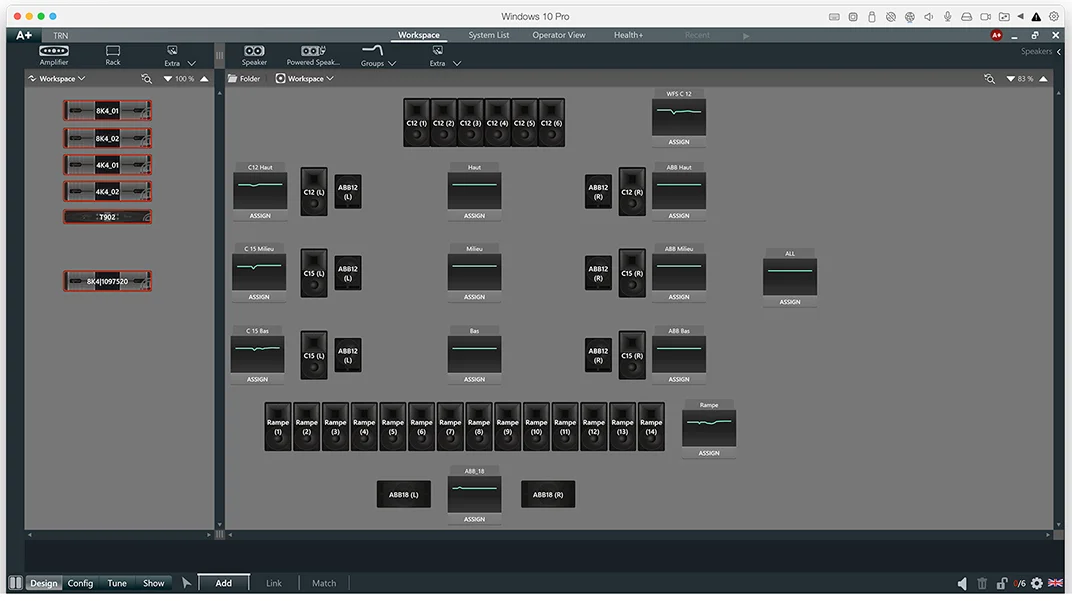
The system is managed and spatialised by a HOLOPHONIX 64 offering 128 inputs and 64 outputs with Italian amplification and processing.
3 x Powersoft Ottocanali 8K4 DSP+D
2 x Powersoft Ottocanali 4K4 DSP+D
1 x Powersoft T902
The integration was carried out by the Theatre’s teams, led by Patrice Dhautcourt, the venue’s Head of Sound, and Jamila Hadiy, the Technical Director. Pipo Gomes, Technical Director at Amadeus and HOLOPHONIX, also intervened on several occasions to supervise and help the teams. The system was set up by Francesco Papaleo, Marc Piera and Gaétan Byk.

Training was provided by Ariane Neumann Educational Engineer at HOLOPHONIX and Francesco Papaleo during a week in May and assistance was provided by Amadeus and HOLOPHONIX during the first two performances on 11 and 12 May 2024.
For more information visit:



